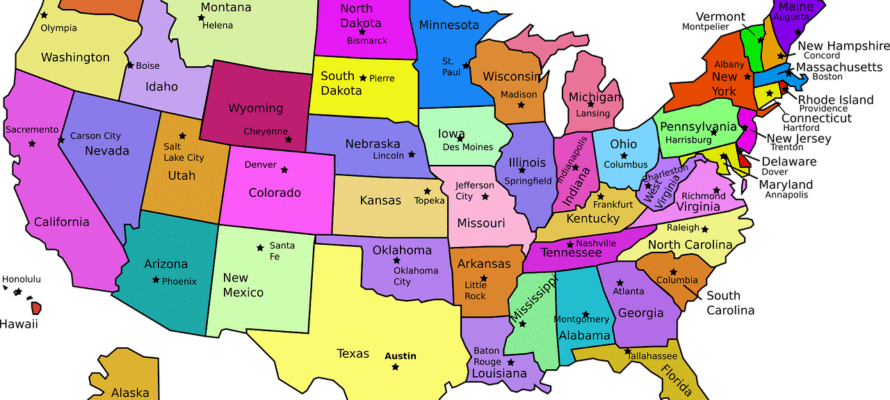My website designer and web marketing guru likes it when I use what he calls “Olde English,” which usually is something like an older version of a word, or an expression that comes from long ago. He asked me the other day where I learned so many words, and I told him it was likely a combination of things, but that I have read the King James Version of the Bible my entire life, and I did go to law school, where many of the professors had large vocabularies and used lots of words. The King James Version of the Bible was written in a style of the english language that is different than how we might speak in modern times, so I likely picked up some older ways of saying things from that reading, but I also like to use the correct word when I speak and write.
Using the correct words is a lesson they drilled into me in law school. Sometimes you can use different works in legal writing and in legal matters, but other times there are certain sets of words that need to be used to give the correct legal meaning to a document or a phrase. One of my law school professors referred to these words as “magic words,” as the exact words or phrases needed to be present to enact a certain provision of law, or to get a certain legal effect. Not every work that is written into an estate planning document needs to be the one right word, but there are many times exact language is necessary.
I find this is most true in writing around, or concerning tax provisions of an estate plan or a trust. The IRS is very exacting and technical when interpreting language in an estate plan, especially if the language exists to get a certain tax treatment that minimizes or eliminates certain taxes from being assessed against the assets of an estate. Although I do not engage in estate tax planning matters, I do know that writing to satisfy the IRS is a very exact science of wording. Estate planning overall requires using the necessary words to reflect your wishes and desires for your assets, but also needs to reflect the necessary language to satisfy the courts, other attorneys, IRS, and other governmental agencies that could be involved in administering your estate or transferring assets to the named beneficiaries, or heroes of your will. Using the correct language in an estate plan is necessary, but it can be a bit unusual sometimes.
The Law Can Seem Like a Foreign Language
 I grew up speaking English as my native language, but I did live in Russia for two years as a missionary for my church. The modern Russian language uses the Cyrillic Alphabet, which has 33 characters, and although some of the characters look the same as letters in English, they can make different sounds. I speak English and Russian, but since I went to law school for three years, and I practice law, I also speak “Law.” English and “Law” use the same words, but they can sometimes be as different as English and Russian. I sometimes feel like I am a translator from “Law” language to plain English.
I grew up speaking English as my native language, but I did live in Russia for two years as a missionary for my church. The modern Russian language uses the Cyrillic Alphabet, which has 33 characters, and although some of the characters look the same as letters in English, they can make different sounds. I speak English and Russian, but since I went to law school for three years, and I practice law, I also speak “Law.” English and “Law” use the same words, but they can sometimes be as different as English and Russian. I sometimes feel like I am a translator from “Law” language to plain English.
I am asked why we cannot use plain English all of the time, and I usually respond that much of the required legal terms come from legal doctrines developed decades ago, or hundreds of years ago, and they persist in the law. Even the term, “Last Will and Testament,” is a term that was developed many years ago, possibly even thousands of years ago, and is the term still used for the document to describe what happens to your assets when you die. The terms “will” and “testament” can have different meanings in English, but this particular combination of terms has a specific legal definition, so we use it.
The same is true of the Medical field, where English words and medical jargon are the same words, but they can sometimes be confusing. In the movie “Star Trek IV,” there is a scene where Doctor McCoy (nickname :Bones) and Captain Kirk are trying to get into a hospital room to save Pavel Chekov’s life (as shown in this short clip). They are stopped by two police officers, and the following dialogue takes place:
McCoy:
My God man. Do you want an acute case on your hands? This woman has immediate post-parandial, upper-abdominal distention.At this point the police officers let them though, and the the following dialogue takes place:
Kirk:
What did you say she has?McCoy:
Cramps.
In this case, Dr. McCory was using the medical words to confuse the police officers and get to where he wanted to be. The effect was comedic, but it does help illustrate the point that language, even in English, can be a bit confusing, if we are not careful what language we use.
You Want to Use Correct Language In Your Estate Plan
 In most cases, doctors are not trying to confuse people when they use medical terminology, but rather they are trying to convey correct information to other medical professionals, like other doctors, nurses, or similar medical personnel. A doctor may tell you that a patient has a broken arm, but may write on the chart a much more technical description of the patient’s condition, so that any other doctor or nurse, or other medical professional who takes over treatment will know exactly what to do with the patient. The medical language helps gives precision to describing a patient’s condition and conveys correct information to the other medical professionals.
In most cases, doctors are not trying to confuse people when they use medical terminology, but rather they are trying to convey correct information to other medical professionals, like other doctors, nurses, or similar medical personnel. A doctor may tell you that a patient has a broken arm, but may write on the chart a much more technical description of the patient’s condition, so that any other doctor or nurse, or other medical professional who takes over treatment will know exactly what to do with the patient. The medical language helps gives precision to describing a patient’s condition and conveys correct information to the other medical professionals.
An estate plan is a somewhat unique document, in that the estate plan is written for both the individual and the individual’s heirs or beneficiaries, and also for all of the other legal professionals who may become involved, like other attorneys, judges, and paralegals. A will cannot be so technical that it cannot be understood by you, as a person not trained in law and familiar with legal language, but it also must be technical enough that other attorneys will know what the will is saying and be able to correctly interpret the will. Sometimes, I will have clients that want me to eliminate all of the legal language, but that is not always possible. I am happy to explain the legal language to a client, so they can understand the meaning of the document they are signing, but I still need to use the correct language to make sure the will is in compliance with the technical requirement of the various parts of the law that may be involved, like the statutes governing wills, or the IRS rules and regulations.
Using the correct legal language to set up your will, trust, or other estate planning documents, is imperative to having your estate plan to what you want.
This Estate Planning Attorney Can Help You Set Things Up Correctly
I don’t expect you to know all the correct terms, or to know the magic words to use in your estate planning documents. I am much more well versed in those types of things. I need you to tell me who should get your assets and who will be in charge of carrying out your estate plan, but I can then fit your wishes and desires into the proper format and create an estate plan that correctly uses language to meet the technical requirements. I can explain confusing terms, and help you understand the language of the document and why it helps you, but only if we work together on your estate plan to ensure everything does what it is supposed to do. You can make an appointment to start working together by clicking the link below.

 720-730-7274
720-730-7274











